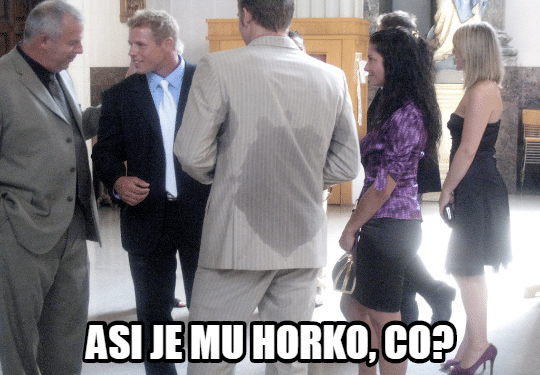4.5 – Je mi zima! – I'm cold! / Je mi vedro! – I'm hot!
|
|
|
We’ve now learned how to talk about the weather and what the temperature is outside. What about our experience of it? In other words, you might want to say that you’re cold, hot, etc. We’ll learn how to do that in this lesson.
For this we’ll use the words we already know (horko, zima, chladno, etc.), but we’ll also need to add who is cold. In Czech we’ll literally say It is cold to me, It is warm to Honza, etc.
For this, we’ll be using forms of the dative case. Just a reminder, the dative case is used for the indirect object (I gave a present to Jan, I said something to Helena). At this point we have begun to see a lot of cases, so if you are feeling a little lost you can take a look at this page on the concept of case lesson if you need a refresher. We won’t learn every last form of the dative now, but just the forms that we’ll need to talk about people being cold, hot, etc.
|
|
MA |
F |
|
Hard Stem |
-ovi Jan → Janovi Petr → Petrovi
|
-e / -ě
Aneta → Anetě Karolína → Karolíně
sound changes: k → c, r → ř (also h → z, ch → š, but those are less common in names so won’t be important here).
Some examples: Veronika → Veronice Sára → Sáře
|
|
Soft Stem |
-ovi Lukáš → Lukášovi Tomáš → Tomášovi |
-i Lucie → Lucii Marie → Marii |
So for Masculine Animate the ending is -ovi regardless of whether it’s hard or soft, while for Feminine it’s -e/-ě
Let’s take a look at some examples:
Janě je vedro.
Jana is hot (It is hot to Jana).
Alešovi je zima.
Aleš is cold (It is cold to Aleš).
You might also want to use pronouns (me, you, him, her, etc.). For that you’ll need…
Dative of Pronouns
The table below gives the dative forms of personal pronouns next to the nominative forms that we already know:
|
nominative form |
dative form |
|
já |
mi, mně |
|
ty |
ti, tobě |
|
on |
mu, jemu |
|
ona |
jí |
|
my |
nám |
|
vy |
vám |
|
oni (ony, ona) |
jim |
These words need to go in 2nd position (we’ve seen this before with words like se and si). Forms mně, tobě, and jemu are long forms, though you don’t need to worry too much now about the distinction between these.
|
|
|
|
Je ti zima? Are you cold? (Is it cold to you?) |
Je mu horko. He is hot. (It is hot to him.) |
Images used in this document come from these sources.




